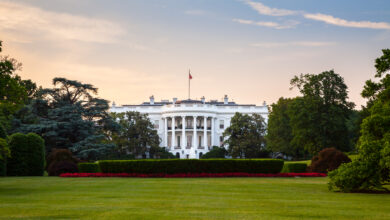Mohammed Bin Salman; A Prince Who Should Not Become A King

In the fall of 1989, Saudi Arabia played acrucial role in officially ending the Lebanese Civil War that began in 1975 and almost destroyed the already brittle republic. Almost thirty years later, a young, impetuous and aggressive Saudi ruler has been concocting diabolical ways to reignite the Lebanese conflict by opening a new front in the regional proxy wars between Saudi Arabian and Iran.
In a meeting with current and former U.S officials in Washington during his last visit in the Spring, crown prince Mohammed Bin Salman said that he was interested in spending up to a hundred million dollars to arm the “Lebanese Forces”, the civil war Christian militia turned political party to transform it from a political adversary of Hezbollah into a lethal enemy. According to a participant in the meeting, the crown prince found no interest in this scheme either in Washington or in Beirut. Contrary to its name, this political party does not have an armed wing and its leadership has disavowed publicly the use of force.
Last year Mohammed Bin Salman sought to recruit The Palestinians residing in refugee camps in Lebanon in his efforts to check Hezbollah, arguably the most effective non-state actor in the world and Iran premier Satrapy in the region. Reasoning that Palestinian President Mahmoud Abbas would join the informal regional anti-Iranian alliance of Saudi Arabia, its Gulf allies, Egypt and Israel, now that the Hamas movement, his rival in Gaza has moved to restore its military and financial relations with Tehran. In a hastily arranged meeting with Mr. Abbas in the kingdom last year the crown prince broached his scheme. Unconfirmed reports say that the Palestinian leader demurred, and then politely rejected the proposal. An Israeli article claimed that confronting Hezbollah and Iran in Lebanon were the main reasons for the meeting, adding \”Playing on these sectarian tensions, the Saudi leadership is looking to recruit the more than 300,000 Palestinians living in Lebanon refugee camps to take part in any future conflict with Hezbollah there.\” These wild schemes are consistent with the crown prince’s anger at his Lebanese ally Prime Minister Saad Hariri, because of his supposed failure to take a strong stand against Iran and Hezbollah, which led him to force Hariri’s resignation.
The man who condemned civilians in Yemen to a slow death, blockaded neighboring Qatar, cracked down harshly on peaceful activists at home, ordered the brutal killing and dismemberment of Jamal Khashoggi abroad, and engaged in a brazen shakedown of other Saudi royals, was in the process of trying to add to his list of depredations, the resumption of armed conflict in Lebanon.
In the last decade Iran has elevated the use of its co-religionist Arab Shi’as and other offshoot Shi’a sects in its battles with its Arab enemies into an art form, fighting them on a crescent shaped front stretching from Basra to Beirut. Young Lebanese Shi’a men belonging to Hezbollah fought ferociously in the streets of Syrian cities against Sunni Syrian rebels to serve, in part Iranian interests. At times when they were exchanging fire in close proximity, they were also hurling insults and sectarian epithets against each other in colloquial Arabic. No Arab country could match Iran’s Shi’a foreign legions, with sectarian legions of their own. Mohammed Bin Salman is very aware of this predicament, and of the embarrassing limits of Saudi military power. His outlandish scheme to use Palestinians and Lebanese to blunt Iran’s proxies reflects that awareness.
Shortly after launching his disastrous air war against the Houthi rebels in Yemen and when he realized that defeating his enemies requires the use of ground troops, the Saudi royal went on a hunt for proxies to fight and bleed on his behalf. In a stunning move that showed his ignorance of the recent history of Yemen, crown prince Mohammed asked Egypt’s President Abdel Fattah el-Sisi to dispatch a contingent of ground troops, thinking that the large financial package Saudi Arabia and its Gulf allies have provided el-Sisi after his military coup in 2013, would be enough of a bribe. For President el-Sisi, who belongs to a generation of Egyptians who were haunted for years by their country’s humiliating and disastrous Yemen war in the 1960’s, that was a royal demand he could only refuse. Undeterred, the insolent Saudi royal moved eastward requesting Pakistani troops; but that quest was rebuffed by a military establishment obsessed with India. But earlier this year Pakistan dispatched few hundred advisors and trainers to Saudi Arabia who will not be deployed at the border with Yemen.
In his short tenure, Mohammed Bin Salman has blazed a trail of bold and bloody moves domestically and regionally that were norm busting, counterintuitive and precedent breaking. While every Saudi monarch since 1932 had interfered in Yemen’s domestic affairs politically, militarily and often aggressively, only Muhammed Bin Salman as the leader of the wealthiest Arab country waged a war to destroy the already weak and fractured economy and infrastructure of the poorest Arab country. His air war soon turned into a rampage of indiscriminate bombings and blockades amounting to possible war crimes, creating the worst humanitarian crisis in the world today. Save the Children organization has estimated that 85,000 children might have died of malnutrition and starvation since the bombings began in 2015.
No party involved in the Yemen war has clean hands. The cynical Iranian regime is willing to fight Saudi Arabia to the last Houthi rebel unconcerned by the rising human toll that they are contributing to. Both the Houthi rebels and what was left of the government forces that the Saudis support, routinely abuse the civilians under their control. Houthis retaliate against indiscriminate Saudi bombings in kind, firing Scud missiles supplied by Iran indiscriminately into Saudi territory. But the culprit responsible in the main for condemning the country once known as Arabia Felix for an agonizing slow death is Saudi Arabia. For this reason alone, Muhammed Bin Salman should be boycotted by the democracies of the world.
Saudi Arabia has had border disputes with Yemen and most of her smaller Gulf neighbors for many years. On occasions it tried to use coercive methods mostly employing tribes to settle these disputes the most famous of which was the Buraimi Oasis dispute of the 1940’s and 50’s, involving Saudi Arabia, Oman and what is now the UAE. But ever since the formation of the Gulf Cooperation Council in 1981 to coordinate economic, political and potentially military policies, disputes were expected to be resolved amicably among member states; Saudi Arabia, Kuwait, UAE, Qatar, Bahrain and Oman. The grouping never amounted to an alliance and now it is in tatters because of political, personal and ideological tensions involving mainly Saudi Arabia, Bahrain and the UAE vs. Qatar.
Years of political tensions, mutual domestic meddling and hostile media campaigns exploded in the summer of 2017 when a coalition of Arab states led by Saudi Arabia imposed unprecedented punitive measures against Qatar including land, air and maritime blockade turning the small peninsula into an isolated island. The grouping known as the Arab quartet -Saudi Arabia, the United Arab Emirates, Egypt and Bahrain – presented Qatar with an ultimatum that the blockade will remain in effect until Qatar comply with13 demands most of which amounted to diktats. Qatar was told to sever its well-known relations with the Muslim Brotherhood as well as other radical and extremists Islamists in the region and beyond, shut down Al Jazeera television network which Qatar used as an effective tool in its foreign policy and media campaigns against its adversaries, close a Turkish military base, and scale down its budding relations with Iran. Even those who were critical of Qatar’s reckless and destructive support of extremists in Syria for example, and had good reasons to complain about Qatar punching way above its weight and meddling in the domestic affairs of others, saw the demands as an excuse to punish Qatar and prolong the crisis. But instead of knuckling under, Qatar fought back using its wealth to blunt the economic impact of the blockade. The insistence of the quartet on their demands, helped Qatar’ public relations campaign to gain sympathy as a victim. The Qatar crisis demonstrated clearly that the new younger leaders in the Gulf see politics as a zero sum game, that they are more willing than their more measured and cautious fathers, to double down and burn the last bridge.
Mohammed Bin Salman has trapped himself in a war in Yemen that he cannot win, but he has already lost his campaign against Qatar. The crown prince’s apologists including the President of the United States claim that he is a reliable partner in the emerging Arab-Israeli regional alliance in blunting Iran’ nuclear ambitions and undermining Tehran’s aggressive regional behavior. But the case can be made that Mohammed Bin Salman’s war in Yemen made the Houthis more dependent on Iran and gave Iran and Hezbollah a military foothold on the Arabian Peninsula that did not exist before the war. The blockade of Qatar led to improved political, economic and trade relations between Doha and Tehran, and increased Turkey’s military profile in the Gulf for the first time since the collapse of the Ottoman Empire a century ago. The Hariri’s fiasco diminished Saudi Arabia in Lebanon, emboldened Hezbollah and the Shi’as and alienated the Sunnis of the country.
The praise heaped on Mohammed Bin Salman as the new awaited Saudi reformer the West has been longing for, until the murder of Khashoggi, says a lot about the naiveté of western analysts and journalists than about the crown prince, who fancied himself as a modernizer seeking to end some of Saudi Arabia’s backward and ‘primitive ‘practices such as banning women from driving, but never pretended to be a political reformer. In recent decades, some American politicians, pundits and even scholars have pinned their hopes on Arab would-be reformers, mainly because they were young, their wives did not wear hijabs, spoke English and looked westernized ‘like us’.Gamal Mubarak in Egypt, and Bashar al-Assad in Syria come to mind.
Much has been written about Mohammed Bin Salman as a ‘reformer’, but most of the focus was on the ‘historic’ decision to allow women to drive, (a decision any new ruler was expected to take) to open up movie theatres, and to allow men and women for the first time to watch together sport competitions. The crown prince was praised because he wanted to diversify the ‘one crop economy’ and make it less dependent on hydrocarbon production, through greater foreign investment, an issue the Saudi elites have been discussing for years. At best these measures are necessary for any nation to survive let alone thrive in the modern world. But there was not a single serious decision to politically empower the population, or to open the public sphere even very slightly.
In fact the short reign of Mohammed Bin Salman has been more despotic than previous rulers. No former Saudi Monarch has amassed the executive powers, political, military and economic that the crown prince has concentrated in his hands except for the founder of the ruling dynasty King Abdul-Aziz Al Saud. His brief tenure has been marked by periodic campaigns of repression. Long before the murder of Khashoggi, scores of writers, intellectuals and clerics were arrested for daring to object to the crown prince’s decisions. Many are still languishing in jails with no formal charges. Even some of the women activists who pushed hard for years to lift the ban on women driving, were incarcerated on trumped up charges of ‘treason’. Women are allowed to drive now – but the crown prince would like them to think that this is because of his magnanimity, and not their struggle- but they are still subject to the misogynistic and atavistic female guardianship system, which treat adult women regardless of their high education and accomplishments as legal minors.
In keeping with the playbook of despots all over the world seeking to consolidate their political power, Mohammed Bin Salman declared a campaign against corruption, as the most effective way to get rid of or intimidate his real and potential foes. He arbitrarily arrested hundreds of royals, former government officials and wealthy businessmen and incarcerated them at the Ritz-Carlton hotel in Riyadh. Most were later released after singing confessions and giving up large portions of their ill-gotten gains. During the same year the crown prince purchased a yacht worth $550 million, and bought a $300 million château in France. When Norah O\’Donnell of CBS’ 60 Minutes asked him about these outlandish purchases, the 32 year old prince simply answered “As far as my private expenses, I\’m a rich person and not a poor person.\” This putsch against royals and other once influential and wealthy Saudis is unprecedented. The Crown Prince’s victims will lie in wait for his next major stumble before they pounce on him. Indeed uneasy lies the head that wears the royal keffiyeh.
In ancient Rome, emperors, senators and notables used the concept and practice of panem et circenses bread and circuses to appease and distract the Plebeians from political involvement by providing cheap bread and entertainment in the form of gladiatorial combats in the numerous colosseums throughout the Empire. By making sure his plebeians are relatively doing well economically, and by entertaining them in movie theatres and providing them modern sports combats, Mohammed Bin Salman is hoping that his Saudi version of bread and circuses will serve as a distraction to his people so that he will continue to consolidate his power, while pretending to be a visionary modernizer.
Jamal Khashoggi is the last of a long trail of Arab journalists and men of letters murdered by their governments at home and abroad. But he was the first one to have a reputable, international medium, the Washington Post that published his columns in English and Arabic, which was one of the reasons that enraged the crown prince. Jamal, was the first journalist millions of people all over the world watched walking his last steps toward his violent death.
Nothing in the tumultuous short reign of Mohammed Bin Salman shows that he is capable of learning from his blunders. Before he reached the age of thirty three he had already cut a trail of blood and tears. The democracies of the world, particularly the United States should shun him and treat him as the pariah that he is. Mohammed Bin Salman is one crown prince who should not become a king.
Postscript:
Many Saudis and others have asked why the international outrage over the killing of Jamal Khashoggi, when other victims of repression receive less or no attention. A fair question although in many cases it has been asked to diminish the value of the victim.
Sometimes the death of one person can take on a significance far outweighing the value of one life, becoming a hinge moment in history. The victim can be an emperor likeJulius Caesar, a president like Abraham Lincoln, a poet like Federico Garcia Lorca, a journalist like Jamal Khashoggi, or the 14 year old Emmett Till, whose gruesome torture and murder, his mutilated body and face in an open casket funeral, the acquittal of his two killers, all combined to transform him from an unknown ordinary African-American teenager, to an early rallying cry for the civil rights movement of the 1950’s and 1960’s. Jamal Khashoggi’s savage murder is already much more than the demise of one life.
Hisham Melhem is a columnist for the Lebanese daily Annahar. Follow him on Twitter at: @hisham_melhem.




